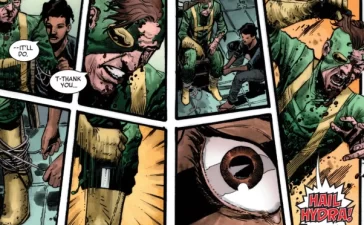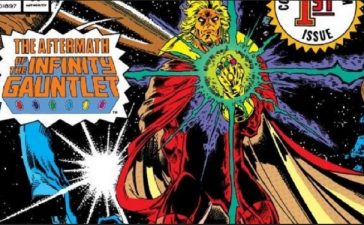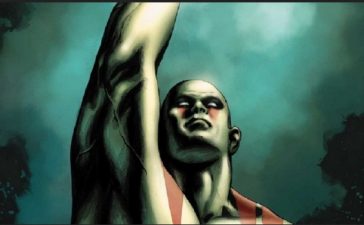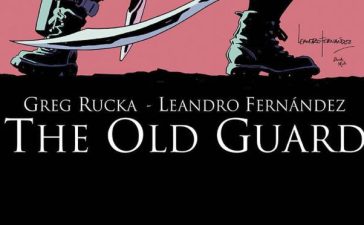
A Plot Called Death: Hickman’s Avengers Epic On Mortality
“Baby, everything dies, now that’s a fact…..”-Bruce Springsteen
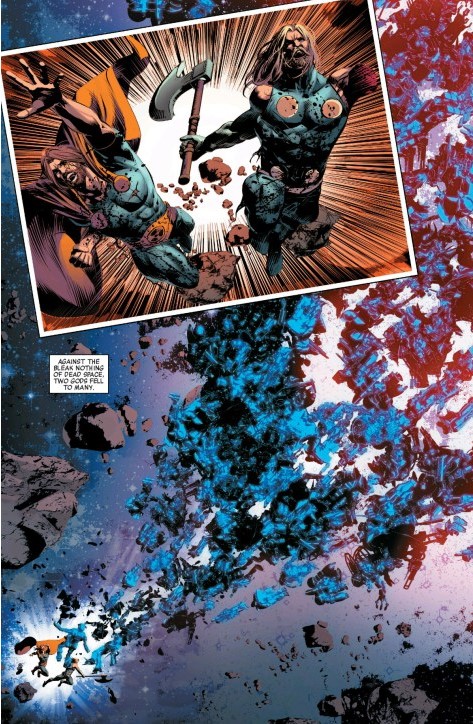
“The Avengers is about life and New Avengers is about death“-Jonathan Hickman
In the lead up to Jonathan Hickman’s take over of Marvel’s flagship Avengers books, that quote always stood out. For someone that sits on the side of optimism, my perception of what it meant against the actual reality of the content could not have been further apart in retrospect, but that’s a good thing. Because while Hickman’s long form transdimensional Marvel epic was a lot of things, what it probably did most was defy expectations and in the realm of corporate comics, that in itself is it’s own kind of rare achievement.
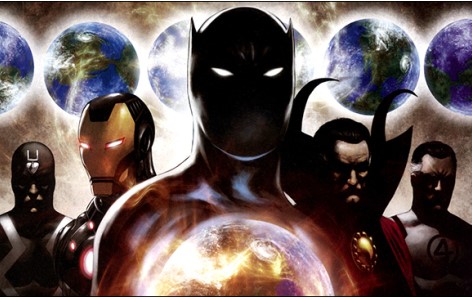 The Marvel Now initiative was perhaps the most excited I had been as an adult comics reader since I got back into following the medium. So many of my favorite creators were taking over or launching new titles that had gone stale after years of the same creative voices. My enthusiasm was running on over drive in seeing Jason Aaron & Esad Ribic on Thor, Deconnick on Avengers Assemble, Remender & Romita Jr on Captain America, Gillen & McKelvie on Young Avengers, Wood & Copiel on X-Men and perhaps the most exciting prospect of all, Jonathan Hickman taking over the mainline Avengers title of Avengers & New Avengers, with artist Jerome Opena & Steve Epting to boot. Hickman had just come off a fantastic revitalization of Marvels Fantastic Four that managed to understand the titles core concepts while expanding it’s scope in a way that had never been done before, a run that would be one of the best in terms of quality and sales that the property had seen in years. Expectations were high and initially, the results were somewhat confounding. At the inception of the title and for quite some time afterwards, the reaction to the book was mixed from readers as the stories were often times in plot building mode and somewhat unorthodox. Hickman would radically expand the cast of one title, while on the other he explored theoretical physics. On top of that, readers found the science jargon hard to follow and cold. But while the comics audience didn’t totally understand what was happening in the moment, Hickman was expertly crafting a story with a larger scope and ambition than had ever been done on a mainline continuity Marvel book before. Now, in the aftermath of the series conclusion, while the road wasn’t always the smoothest, it’s undeniable that the writer pulled off his lofty objective in a way that was in equal parts unexpected, awe inspiring, enlightening and for the reader, rewarding.
The Marvel Now initiative was perhaps the most excited I had been as an adult comics reader since I got back into following the medium. So many of my favorite creators were taking over or launching new titles that had gone stale after years of the same creative voices. My enthusiasm was running on over drive in seeing Jason Aaron & Esad Ribic on Thor, Deconnick on Avengers Assemble, Remender & Romita Jr on Captain America, Gillen & McKelvie on Young Avengers, Wood & Copiel on X-Men and perhaps the most exciting prospect of all, Jonathan Hickman taking over the mainline Avengers title of Avengers & New Avengers, with artist Jerome Opena & Steve Epting to boot. Hickman had just come off a fantastic revitalization of Marvels Fantastic Four that managed to understand the titles core concepts while expanding it’s scope in a way that had never been done before, a run that would be one of the best in terms of quality and sales that the property had seen in years. Expectations were high and initially, the results were somewhat confounding. At the inception of the title and for quite some time afterwards, the reaction to the book was mixed from readers as the stories were often times in plot building mode and somewhat unorthodox. Hickman would radically expand the cast of one title, while on the other he explored theoretical physics. On top of that, readers found the science jargon hard to follow and cold. But while the comics audience didn’t totally understand what was happening in the moment, Hickman was expertly crafting a story with a larger scope and ambition than had ever been done on a mainline continuity Marvel book before. Now, in the aftermath of the series conclusion, while the road wasn’t always the smoothest, it’s undeniable that the writer pulled off his lofty objective in a way that was in equal parts unexpected, awe inspiring, enlightening and for the reader, rewarding.
Before going into Hickman’s Avengers run it’s important to note a key point of distinction with the books, that being that these were never really Avengers books by any traditional definition. Of the two, the mainline Avengers title was the closest to what we’ve seen of the classic style, but even there, the cast and plot were pushing the boundries of that concept to the breaking point. In New Avengers, Hickman didn’t even bother pretending it was anything but a story about the Illuminati team that Bendis initially created. Instead, Hickman’s Avengers/New Avengers titles became a multiverse spanning saga set within Marvel continuity that utilized scientific principles, futurism and philosophies on morality centered around the most basic principle for all living things, that being the struggle for survival.
Avengers/New Avengers wasn’t following the traditional good vs evil dichotomy, it was obliterating it by introducing a harbinger of doom so massive and all encompassing, that it ultimately made that type of thinking irrelevant. Hickman’s Avengers books always had a lot of noise, it was good noise, all the concepts and ideas that were thrown into the book made for a read that was at minimum, interesting and thoughtful but more often a type of entertaining that was uniquely challenging and on occasion, it could be stunningly breath taking. The books required a level of attention to detail that’s unique to the medium and a level of patience that is rarely asked of in serialized story telling and when your talking about an Avengers comic, especially the main Avengers comics, that might have been too much for some readers. That’s ok, Hickman’s Avengers wasn’t for everybody and it wasn’t without it’s flaws. But considering what transpired in the two books as a whole, it’s hard not to admire the vision and execution in it’s overall creation. Hickman took the most popular super team in the world, at the height of it’s popularity, and he used it to make a challenging treatise on the very real fear of the inevitable, high level science fiction to explain one universal and inescapable truth; everything dies.
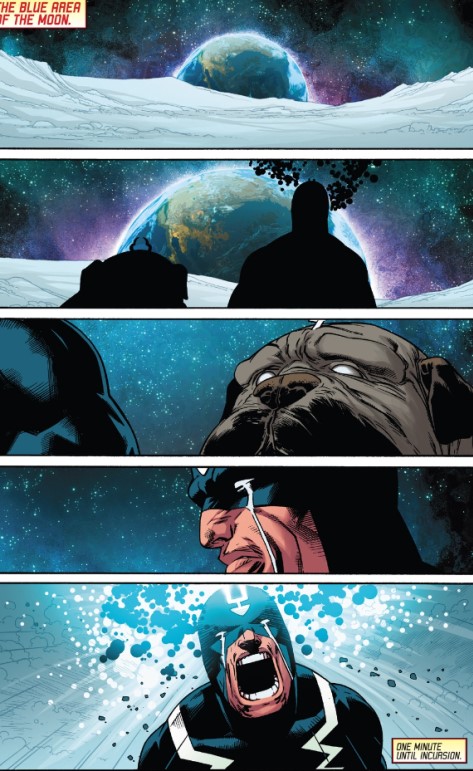 Death is an inevitable fate that we are all trying our best to fight against and we will all lose that fight at some point in our brief lifetime. Much to the dismay of some, Hickman’s Avengers isn’t about life magically surviving over death, it’s about how people react to that inevitability as it’s coming right towards them. As Hickman’s story moved forward, we saw each team move in diametrically opposite directions in an attempt to fight off the end of existence. In Avengers, that meant trying to help those that were effected by the destruction of the multiverse. In New Avengers, that meant destroying others in a futile attempt to save themselves. Eventually one found out about the other and they fought over principles. In the end none of it mattered, in one of the series most poignant moments, the second to last page had Steve Rogers and Tony Stark engage in a fist fight as the world burned around them. But that doesn’t mean none of it mattered, on the contrary it’s what makes all the things that happened in between all the more special. Seeing the tera forms & incurring earths of the series inception, or the large scale space war of Infinity, the parallel realities, the demonic possessions, the betrayal, the agonizing over moral compromise, the travel to the future, the fight with an analogue Justice League, Captain America hunting down the illuminati, Black Panther getting his revenge on Namor, Tony Starks pushing back the Shiar, Thor & Hyperion going out like the warriors they are; just because it was all futile didn’t make it any less thrilling in the moment. And that’s all that any of this is, it’s just moments, they are gone as soon as they’re are realized. Hickman’s Avengers books aren’t about life triumphing over death, it’s about death triumphing over life and as a byproduct of that, why life is strangely wonderful and precious, even when we are preoccupied with it’s opposite. It’s a pointless obsession, everything dies.
Death is an inevitable fate that we are all trying our best to fight against and we will all lose that fight at some point in our brief lifetime. Much to the dismay of some, Hickman’s Avengers isn’t about life magically surviving over death, it’s about how people react to that inevitability as it’s coming right towards them. As Hickman’s story moved forward, we saw each team move in diametrically opposite directions in an attempt to fight off the end of existence. In Avengers, that meant trying to help those that were effected by the destruction of the multiverse. In New Avengers, that meant destroying others in a futile attempt to save themselves. Eventually one found out about the other and they fought over principles. In the end none of it mattered, in one of the series most poignant moments, the second to last page had Steve Rogers and Tony Stark engage in a fist fight as the world burned around them. But that doesn’t mean none of it mattered, on the contrary it’s what makes all the things that happened in between all the more special. Seeing the tera forms & incurring earths of the series inception, or the large scale space war of Infinity, the parallel realities, the demonic possessions, the betrayal, the agonizing over moral compromise, the travel to the future, the fight with an analogue Justice League, Captain America hunting down the illuminati, Black Panther getting his revenge on Namor, Tony Starks pushing back the Shiar, Thor & Hyperion going out like the warriors they are; just because it was all futile didn’t make it any less thrilling in the moment. And that’s all that any of this is, it’s just moments, they are gone as soon as they’re are realized. Hickman’s Avengers books aren’t about life triumphing over death, it’s about death triumphing over life and as a byproduct of that, why life is strangely wonderful and precious, even when we are preoccupied with it’s opposite. It’s a pointless obsession, everything dies.
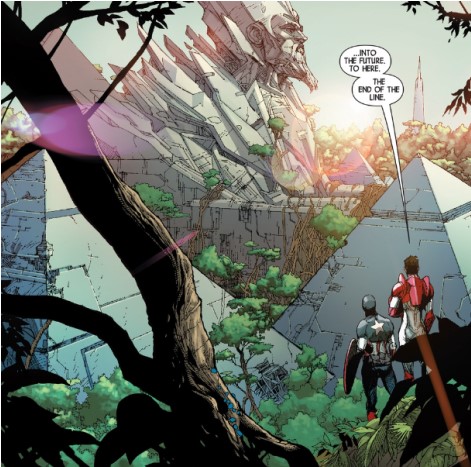
“But maybe everything that dies, someday comes back……”-Bruce Springsteen





